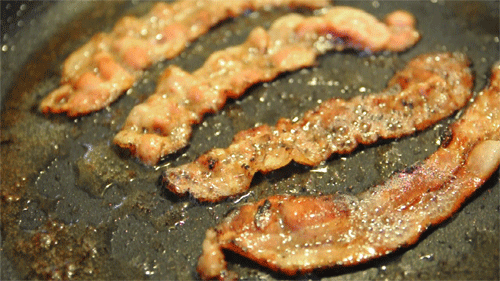A calorie is not a calorie

elephant_in_the_room
Posts: 145 Member
This topic has been discussed before, and I also thought I had read about it, but here is a bit more depth:
http://www.abc.net.au/science/articles/2013/11/12/3889049.htm
It actually puts figures to the claims: so, for every 100 calories of fat you eat, you actually get to use 98 calories, and for every 100 calories of protein you eat, you actually only get to peruse about 75 -- the rest goes into the digestion process, is the energy to break up the molecule.
And mice who eat raw sweet potatoes lose weight, but mice who eat cooked sweet potatoes gain weight. It makes a lot of sense -- if you have to soften the sweet potato in your guts first, of course that takes some processing in there, and then there will relatively less energy be available to you.
Where does that leaves us at MFP... Should we only count the raw vegetable calories half, depending on hardness? Where is the actual calorie figure? Of course it even varies per person....
Anyway, very interesting article.
http://www.abc.net.au/science/articles/2013/11/12/3889049.htm
It actually puts figures to the claims: so, for every 100 calories of fat you eat, you actually get to use 98 calories, and for every 100 calories of protein you eat, you actually only get to peruse about 75 -- the rest goes into the digestion process, is the energy to break up the molecule.
And mice who eat raw sweet potatoes lose weight, but mice who eat cooked sweet potatoes gain weight. It makes a lot of sense -- if you have to soften the sweet potato in your guts first, of course that takes some processing in there, and then there will relatively less energy be available to you.
Where does that leaves us at MFP... Should we only count the raw vegetable calories half, depending on hardness? Where is the actual calorie figure? Of course it even varies per person....
Anyway, very interesting article.
0
Replies
-
A calorie is a measurement of energy. An inch is an inch, a watt is a watt, and a calorie is a calorie.0
-
more fireworks are coming..and it's not even the 4th of July
 0
0 -
In addition to what somerisagirlsname said, that terribly-written article makes lots of claims about what "the latest research" is saying, but there is not a single iota of citation. There are no studies referenced. There is nothing but assertion credited to "research".
I can play too. Research shows that a calorie is a calorie.0 -
Yep... It's a catchy short phrase for 'a calorie [that you eat] is not [necessarily] a calorie [that your body has available for its own energy needs, or to store as fat].'0
-
I am currently researching "A calorie is not a calorie" and my studies show they are stoopid.0
-
In for the show.0
-
Yep... It's a catchy short phrase for 'a calorie [that you eat] is not [necessarily] a calorie [that your body has available for its own energy needs, or to store as fat].'
^^This.
Just like it's not as simple as "calories in, calories out". If that were true everyone cutting 1000 calories a day would lose 104 lbs a year. Heh.0 -
In the words of a great man, "A toaster is not a toaster."
See how stupid that sounds?0 -
Agreed, weasel words, as we say on Wikipedia.In addition to what somerisagirlsname said, that terribly-written article makes lots of claims about what "the latest research" is saying, but there is not a single iota of citation. There are no studies referenced. There is nothing but assertion credited to "research".
I can play too. Research shows that a calorie is a calorie. 0
0 -
-
Yep... It's a catchy short phrase for 'a calorie [that you eat] is not [necessarily] a calorie [that your body has available for its own energy needs, or to store as fat].'
^^This.
Just like it's not as simple as "calories in, calories out". If that were true everyone cutting 1000 calories a day would lose 104 lbs a year. Heh.
I lost 140 lbs in 7 months. It most certainly is calories in, calories out.
Also, the thermic effect of food is nothing new and typically not enough of a factor to make much difference. It's a unit of measurement. A watt isn't a watt, because amps?0 -
Yep... It's a catchy short phrase for 'a calorie [that you eat] is not [necessarily] a calorie [that your body has available for its own energy needs, or to store as fat].'
^^This.
Just like it's not as simple as "calories in, calories out". If that were true everyone cutting 1000 calories a day would lose 104 lbs a year. Heh.
Yeah, because that's how physics work. If you expend 2000 units of energy and consume 1000 units of energy, there is a deficit. In humans that deficit is satisfied by existing bodily tissues. The point at which that does not remain true, and a human can do 2000 units of work with 1000 units of fuel, we will have invented a perpetual motion machine and let's all fly to the moon and plant moon daisies and sing songs of chocolate bars.0 -
If they truly are accurately estimating their intake and burns, I don't see why they wouldn't. If I have a 500 calorie deficit everyday, I'll lose a lb in a week or, at least, I'll be trending downward at about that pace. *shrugs*Yep... It's a catchy short phrase for 'a calorie [that you eat] is not [necessarily] a calorie [that your body has available for its own energy needs, or to store as fat].'
^^This.
Just like it's not as simple as "calories in, calories out". If that were true everyone cutting 1000 calories a day would lose 104 lbs a year. Heh.0 -
I read once that a man on the celery diet died of starvation. He only ate celery, and you spend more energy (calories) chewing and digesting it so basically he was eating nothing. But it didn't say that the celery has no cals it just said that he exerted more calories than his intake.0
-
Well sure it's true.
Not all calories of food you eat are indeed digested and ingested for use by the body, and even those that are, the amount of energy to do so in essence means they don't provide as much as what the label says.
But in a diet counting calories, that's already taken care of by selecting Activity level Sedentary, or whatever. That has your BMR, it also includes your non-exercise calories, and it has your calories related to processing food (TEF). Usually considered to be about 10% of TDEE.
So it's already accounted for in relation to average diets.
You'd have to eat to one extreme or the other, like straight fat, or straight protein, to move away from the already included average to be meaningful.
But at what point does it really start to make a difference?
And what about the food you don't absorb?
And what about carbs, where you don't even absorb fiber that is counted as carbs, but adds no calories in reality. And why in Europe and other places it's not a subset of carbs actually.
http://www.bodyrecomposition.com/nutrition/nutrient-intake-nutrient-storage-and-nutrient-oxidation.html0 -
In for the science0
-
In for moon daises, and to learn about how the identity property of numbers is invalid.
 0
0 -
Yeah, because that's how physics work. If you expend 2000 units of energy and consume 1000 units of energy, there is a deficit. In humans that deficit is satisfied by existing bodily tissues. The point at which that does not remain true, and a human can do 2000 units of work with 1000 units of fuel, we will have invented a perpetual motion machine and let's all fly to the moon and plant moon daisies and sing songs of chocolate bars.
Done. What's next?0 -
This shows a flaw in how calories are measured. If we measure available energy in food by burning it in a lab, this is not quite the same as what our body has to do. So we see things like cooked food having more calories available than raw food because some polymers are broken down by cooking, and that means less work for our enzymes, saving them ATP, saving us calories. I think about this a lot with bacon. Think of how much fat is rendered off during the cooking process. Are the nutrition facts based on the raw sliced with all the unrendered fat, or was the calorie measurement taken later after all that fat was melted off the slice?0
-
Why does this argument keep coming up? I'm losing fat. Nuff said.0
-
Those are moon lilies. Anyone can plant moon lilies on the moon.
Yeah, because that's how physics work. If you expend 2000 units of energy and consume 1000 units of energy, there is a deficit. In humans that deficit is satisfied by existing bodily tissues. The point at which that does not remain true, and a human can do 2000 units of work with 1000 units of fuel, we will have invented a perpetual motion machine and let's all fly to the moon and plant moon daisies and sing songs of chocolate bars.
Done. What's next?0 -
A calorie is most definitely a calorie.
What you are getting at is TEF (thermic effect of food). The different macros require different amounts of energy to digest/process, protein being the highest. Usually, you figure 10% of your calories ingested will be used in TEF, so you add that to your calories OUT.
Ignore BS studies on mice. They are not humans.
Edit: don't add 10% to your calories out. TEF is probably already figured into most good calorie expenditure estimates.0 -
Guys, relax. Have some thermodynamically implausible chocolate.
 0
0 -
I think about this a lot with bacon. Think of how much fat is rendered off during the cooking process. Are the nutrition facts based on the raw sliced with all the unrendered fat, or was the calorie measurement taken later after all that fat was melted off the slice?
I think about bacon a lot too. Mmm. Bacon. 0
0 -
Those are moon lilies. Anyone can plant moon lilies on the moon.
Curses. Foiled again.0 -
Yep... It's a catchy short phrase for 'a calorie [that you eat] is not [necessarily] a calorie [that your body has available for its own energy needs, or to store as fat].'
^^This.
Just like it's not as simple as "calories in, calories out". If that were true everyone cutting 1000 calories a day would lose 104 lbs a year. Heh.
I lost 140 lbs in 7 months. It most certainly is calories in, calories out.
Also, the thermic effect of food is nothing new and typically not enough of a factor to make much difference. It's a unit of measurement. A watt isn't a watt, because amps?
You are everyone? :-) Nah, as awesome as you might be! Weight loss isn't always linear. Not enough sleep, not enough water, hormonal issues and simply not enough fat on the body to lose would prevent a 2 lb a week loss Grats on your loss tho.0 -
The package will usually say. Or if you buy from a butcher, that was discussed here: http://www.myfitnesspal.com/topics/show/1123179-bacon-do-the-cals-include-the-fat?This shows a flaw in how calories are measured. If we measure available energy in food by burning it in a lab, this is not quite the same as what our body has to do. So we see things like cooked food having more calories available than raw food because some polymers are broken down by cooking, and that means less work for our enzymes, saving them ATP, saving us calories. I think about this a lot with bacon. Think of how much fat is rendered off during the cooking process. Are the nutrition facts based on the raw sliced with all the unrendered fat, or was the calorie measurement taken later after all that fat was melted off the slice?0 -
A calorie is most definitely a calorie.
What you are getting at is TEF (thermic effect of food). The different macros require different amounts of energy to digest/process, protein being the highest. Usually, you figure 10% of your calories ingested will be used in TEF, so you add that to your calories OUT.
Ignore BS studies on mice. They are not humans.
Edit: don't add 10% to your calories out. TEF is probably already figured into most good calorie expenditure estimates.
Good thing you clarified... I was gonna ask if I could "eat those back", then eat back the TEF from THAT... Then eat back... 0
0 -
 0
0 -
A calorie is most definitely a calorie.
What you are getting at is TEF (thermic effect of food). The different macros require different amounts of energy to digest/process, protein being the highest. Usually, you figure 10% of your calories ingested will be used in TEF, so you add that to your calories OUT.
Ignore BS studies on mice. They are not humans.
Edit: don't add 10% to your calories out. TEF is probably already figured into most good calorie expenditure estimates.
Good thing you clarified... I was gonna ask if I could "eat those back", then eat back the TEF from THAT... Then eat back...
Haha, I like that idea. I'd be up all night, perpetually finding something worth 10% of the last thing I ate.0
This discussion has been closed.
Categories
- All Categories
- 1.4M Health, Wellness and Goals
- 398.5K Introduce Yourself
- 44.7K Getting Started
- 261K Health and Weight Loss
- 176.4K Food and Nutrition
- 47.7K Recipes
- 233K Fitness and Exercise
- 462 Sleep, Mindfulness and Overall Wellness
- 6.5K Goal: Maintaining Weight
- 8.7K Goal: Gaining Weight and Body Building
- 153.5K Motivation and Support
- 8.4K Challenges
- 1.4K Debate Club
- 96.5K Chit-Chat
- 2.6K Fun and Games
- 4.8K MyFitnessPal Information
- 18 News and Announcements
- 21 MyFitnessPal Academy
- 1.5K Feature Suggestions and Ideas
- 3.2K MyFitnessPal Tech Support Questions







 http://www.youtube.com/watch?v=WGLwzbvx4S4&t=1m59s
http://www.youtube.com/watch?v=WGLwzbvx4S4&t=1m59s







